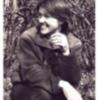Tim Dee
Author of The Running Sky: A Bird-Watching Life
About the Author
Tim Dee was born in Liverpool in 1961. He has worked as a BBC radio producer for more than twenty years and divides his life between Bristol and Cambridge. His first book. The Running Sky: A Birdwatching Life, was published in 2009.
Works by Tim Dee
Associated Works
Archipelago, Number Seven (Winter 2012) — Contributor — 1 copy
Archipelago, Number Nine (Winter 2014) — Contributor — 1 copy
Archipelago: Number Ten (Winter 2015) — Contributor — 1 copy
Tagged
Common Knowledge
- Birthdate
- 1961
- Gender
- male
- Birthplace
- Liverpool, Merseyside, England, UK
- Relationships
- Jamie, Kathleen (travel companion)
Members
Discussions
Tim Dee's 'The Running Sky' in Birds, Birding & Books (December 2013)
Reviews
Lists
Awards
You May Also Like
Associated Authors
Statistics
- Works
- 8
- Also by
- 7
- Members
- 302
- Popularity
- #77,842
- Rating
- 3.7
- Reviews
- 5
- ISBNs
- 27
- Favorited
- 1

















Where gulls win though is our wastefulness these days, we throw so much rubbish away as well as littering the cities and countryside that they have become intertwined and dependent on us. As we are not allowed to incinerate rubbish these days, the items that we cannot recycle have to go into landfill. On every waste site around the country, you will see gulls in their hundreds, sifting through the plastic searching for titbits to eat. The generic, and incorrect term, seagull covers all of these large white birds. But if you take time to stop and look at them you will start the see the difference between the various species that live in the UK. Until recently it is only with the science of DNA testing that now that we are seeing the subtle difference between very similar looking gulls and that are many more subspecies than was first thought.
A ghost gull - the colour of dirty ice or wood ashes. It was like an ice-light or snow lantern on the shore.
Tim Dee has been a bird watcher since his teens, where he would try and look at almost anything with feathers, but he is becoming a “larophiles” or gull enthusiast as they pique his curiosity now. He heads to Essex to one of the main landfill sights for London to help catch and ring them and realises just how large they are when handling them. He travels backwards and forwards across the country seeking them, as well as heading to South Africa and then Madagascar to see their gulls. It is wide-ranging too, he finds gulls in books, those that have made it to the big screen as well as those that have had their fifteen minutes of infamy in the news. Mostly though this is a eulogy to a bird that most would not even consider worth watching, birds that he can see every day when he closes his front door in his home city of Bristol, birds that are intrinsically linked to us. Thought that this was another brilliant read from Tim Dee and after reading this I am never going to look at gull in the same way. Very highly recommended; if you haven’t read his other books, then I would urge you to do so.… (more)